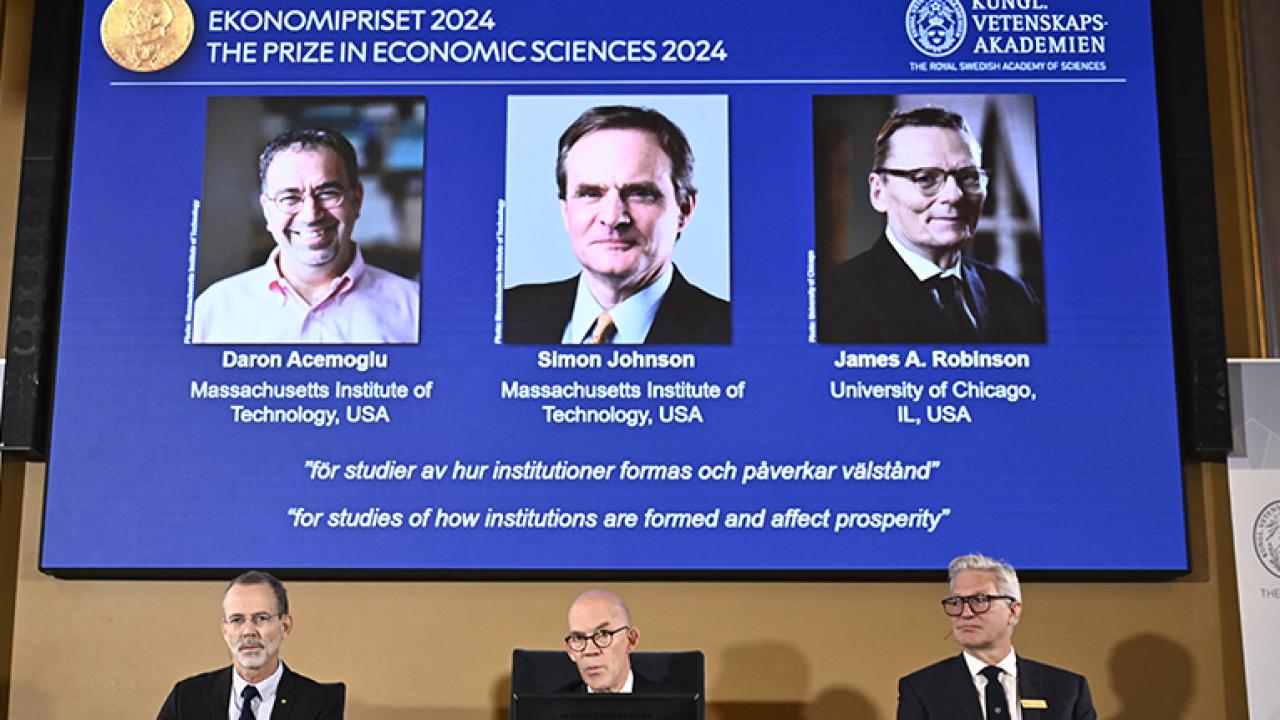
Americans Daron Acemoglu, of Turkish origin, and Simon Johnson and James A. Robinson, both of British origin, won the award after demonstrating "the importance of social institutions in reducing the enormous income differences between countries."
Americans Daron Acemoglu, of Turkish origin, Simon Johnson and James A. Robinson, both of British origin, received this Monday the Nobel Prize in Economic Sciences for 2024 "for their studies on how institutions are formed and how they affect prosperity," said the jury of the Royal Swedish Academy of Sciences, in its statement.
"Bridging the huge income gaps between countries is one of the greatest challenges of our time. The laureates have shown the importance of social institutions in achieving this," said Jakob Svensson, Chair of the Economic Sciences Prize Committee.
Colonization and introduction of inclusive vs. exclusive institutions
The three laureates, who work in academic centers in the United States, have demonstrated, according to the committee, the importance of social institutions for the prosperity of nations and that societies with a weak rule of law and institutions that tend to exploit the population do not generate growth or changes that lead to improvement.
The laureates, the committee says, have proven that one of the explanations for the differences in prosperity between countries is the social institutions that were introduced during colonization. The creation of inclusive institutions has generated wealth while extractive institutions, although they produce short-term gains for those in power, do not improve the general situation of the population.
Change is possible
However, they also demonstrate that change is possible and that new institutions can be formed. In some circumstances, a country can break free from its inherited institutions to establish democracy and the rule of law. In the long term, these changes also lead to a reduction in poverty.
Based on an analysis of the situation in the city of Nogales, on the border between Mexico and the United States, the three economists show that what is decisive is not geography or culture but institutions.
"People north of the fence live in the U.S. economic system, which gives them greater opportunities to choose their education and profession. They are also part of the U.S. political system, which grants them broad political rights," the committee said.
"South of the fence, residents are not so fortunate. They live in different economic conditions and the political system limits their potential to influence legislation," he stresses.
The Sveriges Riksbank Prize in Memory of Alfred Nobel, as the award is officially called, is the only one not established in his will.









